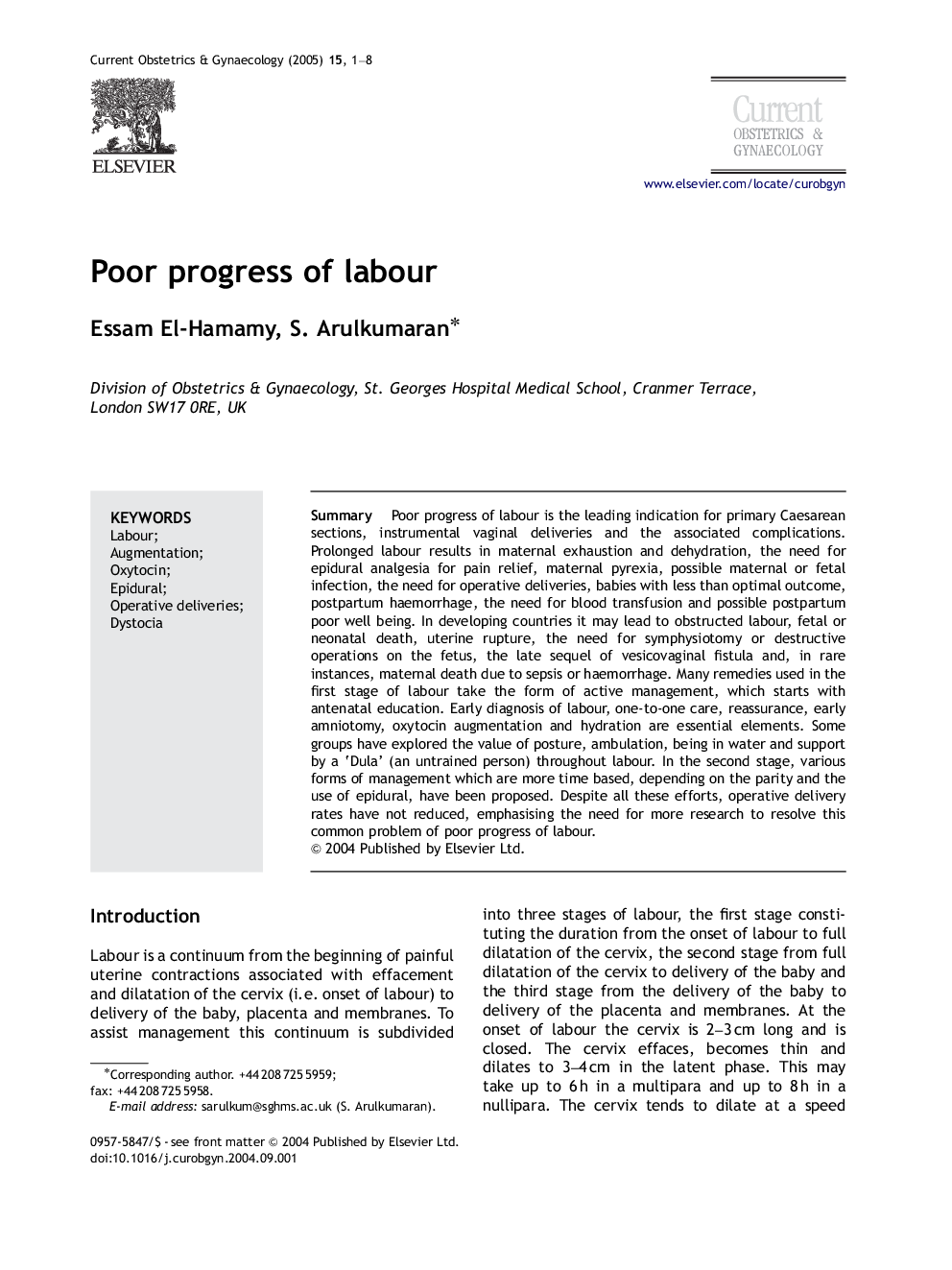| Article ID | Journal | Published Year | Pages | File Type |
|---|---|---|---|---|
| 9318417 | Current Obstetrics & Gynaecology | 2005 | 8 Pages |
Abstract
Poor progress of labour is the leading indication for primary Caesarean sections, instrumental vaginal deliveries and the associated complications. Prolonged labour results in maternal exhaustion and dehydration, the need for epidural analgesia for pain relief, maternal pyrexia, possible maternal or fetal infection, the need for operative deliveries, babies with less than optimal outcome, postpartum haemorrhage, the need for blood transfusion and possible postpartum poor well being. In developing countries it may lead to obstructed labour, fetal or neonatal death, uterine rupture, the need for symphysiotomy or destructive operations on the fetus, the late sequel of vesicovaginal fistula and, in rare instances, maternal death due to sepsis or haemorrhage. Many remedies used in the first stage of labour take the form of active management, which starts with antenatal education. Early diagnosis of labour, one-to-one care, reassurance, early amniotomy, oxytocin augmentation and hydration are essential elements. Some groups have explored the value of posture, ambulation, being in water and support by a 'Dula' (an untrained person) throughout labour. In the second stage, various forms of management which are more time based, depending on the parity and the use of epidural, have been proposed. Despite all these efforts, operative delivery rates have not reduced, emphasising the need for more research to resolve this common problem of poor progress of labour.
Related Topics
Health Sciences
Medicine and Dentistry
Obstetrics, Gynecology and Women's Health
Authors
Essam El-Hamamy, S. Arulkumaran,
